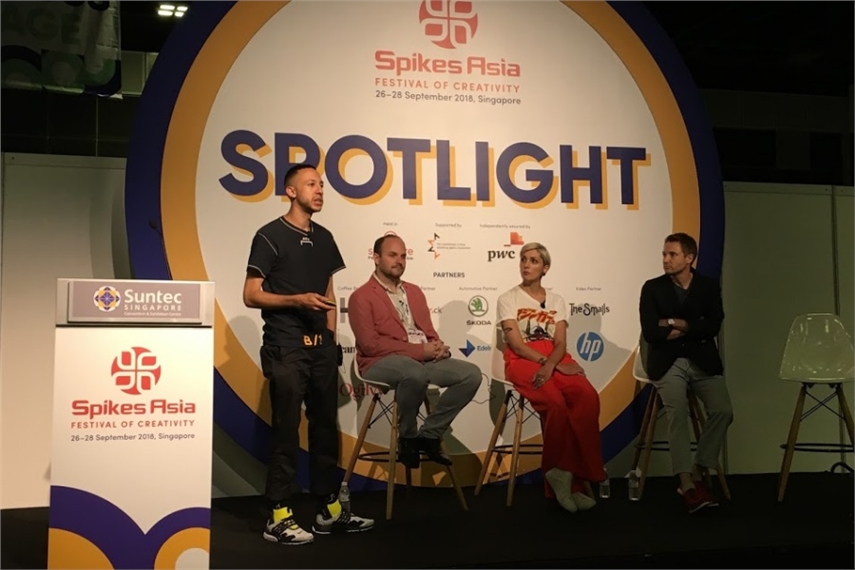What do snowboarding and judo have in common? A team from MullenLowe Japan shared the answer, and more importantly the data-led approach that revealed it, during a session at Spikes Asia 2018 Wednesday afternoon.
While being an official Olympic sponsor carries a hefty price tag and a large amount of risk, not every brand is as well positioned to mount a guerilla marketing campaign around the games as, say, Nike, said James Hollow, MullenLowe Japan's CEO. He and his colleagues went on to describe work done by the agency's Tokyo 20XX group—a "cultural analytics" approach that can predict the future behaviour of cultural "tribes" that brands can leverage to make significant impact, Hollow said.
Mike Sunda, program lead for Tokyo 20XX, said that the effort aims to map cultural tribes holistically, starting with data. Doing so can provide "organic, naturally occuring proof that a lot of your biases are probably wrong", and allow you to plan new and interesting work, he said.
Jonathan Hart, head of data science and analytics, said that the group analyzed viewing data gathered by Eurosport on the Pyeongchang 2018 winter games, which revealed the somewhat surprising ways people fell into viewer clumps. For example, while one might expect that all skiing-related sports would appeal to a similar group, the company found high crossover among fans of alpine skiing, freestyle skiing, and snowboarding. But other competitions, such as ski jumping and the nordic-combined event, did not appeal to this group.
Taking the analysis a step further, the team then layered on other data about people in that "thrill-seeking" segment. This revealed that judo, equestrian, squash and surfing are the summer events the same group is likely to enjoy.
Zélia Sakhi, head of experience, said this analysis points to other options for non-sponsor brands, aside from Nike-style hijacking. Playing a long game, by getting involved early, using better targeting and creating better experiences would be more effective. In addition, the thrill-seeking cohort showed more willingness to replay visually intense events after the competition (as opposed to those who favoured less visual sports like curling), which indicates that brands could re-engage with these viewers even months after the official games end.
"This is an approach that can be applied to any massive cultural event that will capture attention from a large segment of the population," Hollow added.
Sunda stressed that combining data science with the study of cultures is not only effective but also necessary in a world where we may share more in common with people on another continent than our neighbors. He cited the example of the term "Asian millennial", pointing out that a term that can be applied equally well to a 20-something Muslim in Indonesia and a 30-something salaryman in Tokyo is effectively useless. Brands have to get beyond such simplifications.
"Culture is the best vessel for transmitting and amplfying a brand's message," he said. "And traditional segmentation doesn't reflect the modern world."


